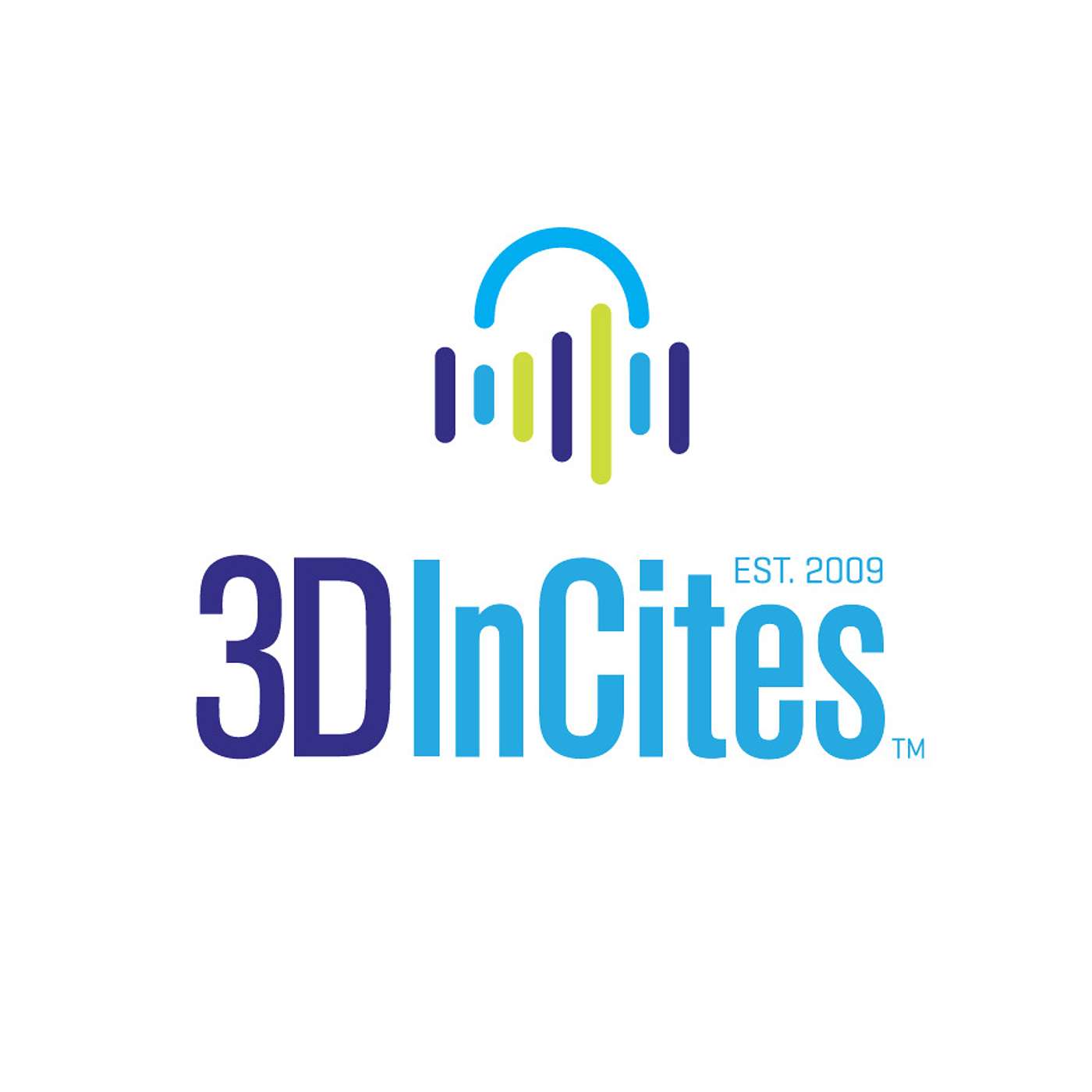3D InCites Podcast
Europe’s Advanced Packaging: Progress, Players, And The Road Ahead
Dec 11, 2025
Season 5
Episode 29
Francoise von Trapp
Fifty years of Semicon Europa set a fitting backdrop for a conversation that feels both celebratory and unsentimental about the state of advanced packaging in Europe. We walk the floor in Munich and pull together a story that spans chemical metrology, panel plating, glass substrates, thermal materials, logistics resilience, and the push from R&D to production—plus a heartfelt goodbye.
Dena Mitchell, Nova opens the curtain on chemical metrology for electroplating, showing how bath health drives TSV fill, hybrid bond grain structure, and environmental wins through longer bath life. Sally Ann Henry, ACM Research, explains why horizontal panel electroplating can deliver better uniformity than vertical as panel-level packaging grows. Thomas Uhrmann, EV Group zooms out to the strategy: Europe’s strength in pilot lines and research consortia, the urgency to materialize large-scale packaging fabs, and how the EU Chips Act is knitting packaging into every node from photonics to logic.
Henkel's Ram Trichur takes on thermals, from kilowatt-class data center processors with backside power delivery to mobile’s shift from package-on-package to side-by-side for exposed die cooling, and the heat challenges inside HBM stacks. Comet's Isabella Drolz steps into glass panel territory with TGV inspection at 610 x 610 mm, aligning tools, standards, and timelines toward late-decade ramps. Martin Wynaendts van Resandt explains how
Lab14 brings agility with direct-write lithography for large substrates and optical interconnect masters—speeding iteration and trimming mask overhead as co-packaged optics advances. Jim Garstka, Shellback Semiconductor, talks about its Hydrozone product that is finding traction in photo mask cleaning.
We also get practical about moving all this innovation: Barry O'Dowd and Robin Knopf, of Kuehne+Nagel, detail how Europe’s packaging supply chains remain global, and how sea-air blends can cut cost and time for non-sensitive, high-volume flows while building resilience against disruptions. ASE's Patricia MacLeod, Christophe Zinck, and Bradford Factor tie it together with automotive realities—centralized compute, heterogeneous integration, reliability constraints—and the enduring role of MEMS and sensors to feed the brain of the car.
It’s a grounded, forward-looking journey through the technologies and decisions that will determine whether Europe turns its R&D leadership into production momentum. Listen for clear takeaways, candid perspectives, and a final toast to the community that made the 3D InCites Podcast possible.
If this conversation resonates, follow the show, share it with a colleague, and leave a review to help more listeners find it.
Support the show
 Europe’s Advanced Packaging: Progress, Players, And The Road Ahead
1:13:48
Europe’s Advanced Packaging: Progress, Players, And The Road Ahead
1:13:48
 From Pilot Lines To Fabs: How Europe Builds Semiconductor Resilience
20:58
From Pilot Lines To Fabs: How Europe Builds Semiconductor Resilience
20:58
 How Optical Inspection Protects Advanced PCBs
14:44
How Optical Inspection Protects Advanced PCBs
14:44
 What Happens When Support, Grit, And Communication Shape Women’s STEM Journeys
47:15
What Happens When Support, Grit, And Communication Shape Women’s STEM Journeys
47:15
 How Wide Bandgap Materials Are Rewiring Energy Efficiency
32:46
How Wide Bandgap Materials Are Rewiring Energy Efficiency
32:46
 From Hybrid Bonding To AI Power: Live At SEMICON West
1:33:06
From Hybrid Bonding To AI Power: Live At SEMICON West
1:33:06
 Building The U.S. Microelectronics Workforce; A Collective Plan for Sustainable Semiconductors
31:24
Building The U.S. Microelectronics Workforce; A Collective Plan for Sustainable Semiconductors
31:24
 3D InCites Member Spotlight: Why the Front End Needs the Back End To Win in AI
1:05:55
3D InCites Member Spotlight: Why the Front End Needs the Back End To Win in AI
1:05:55
 First Impressions, Lasting Paths at IMAPS Symposium 2025
20:23
First Impressions, Lasting Paths at IMAPS Symposium 2025
20:23
 IMAPS Symposium 2025: Chiplets vs. Dielets and the Truth about Co-Packaged Optics
45:56
IMAPS Symposium 2025: Chiplets vs. Dielets and the Truth about Co-Packaged Optics
45:56
 The Unseen Force Behind Semiconductor Device Reliability
43:28
The Unseen Force Behind Semiconductor Device Reliability
43:28
 Relocating SEMICON West: Phoenix's Rise in the Semiconductor Industry
25:51
Relocating SEMICON West: Phoenix's Rise in the Semiconductor Industry
25:51
 San Diego Calling: Your Complete Guide to the IMAPS Symposium
29:12
San Diego Calling: Your Complete Guide to the IMAPS Symposium
29:12
 Beyond Silicon: The Power of X-Ray Metrology in Advanced Packaging
32:34
Beyond Silicon: The Power of X-Ray Metrology in Advanced Packaging
32:34
 Can Thailand Compete in the Global Chip Race?
18:27
Can Thailand Compete in the Global Chip Race?
18:27
 From Electrons to Photons: ASE's Vision for Sustainable AI
24:10
From Electrons to Photons: ASE's Vision for Sustainable AI
24:10
 3D InCites Members Reveal Breakthrough Technologies at ECTC 2025
1:15:07
3D InCites Members Reveal Breakthrough Technologies at ECTC 2025
1:15:07
 The AI Revolution: Energy, Ethics, and Advanced Packaging
14:59
The AI Revolution: Energy, Ethics, and Advanced Packaging
14:59
 ECTC at 75: Pioneers Reflect on Packaging's Past and Future
26:50
ECTC at 75: Pioneers Reflect on Packaging's Past and Future
26:50
 From Tape-Out to Co-Design: The Evolution of 3DIC Technologies
36:37
From Tape-Out to Co-Design: The Evolution of 3DIC Technologies
36:37
 Revolutionizing Semiconductor Quality: The Dynamic Planar CT Advantage
20:06
Revolutionizing Semiconductor Quality: The Dynamic Planar CT Advantage
20:06
 The Wireless Golden Gateway: Why Advanced Packaging Professionals Should Attend IMS 2025
31:45
The Wireless Golden Gateway: Why Advanced Packaging Professionals Should Attend IMS 2025
31:45
 Acoustic Inspection: The Key to Semiconductor Reliability
31:11
Acoustic Inspection: The Key to Semiconductor Reliability
31:11
 Chip Champions: How The 3D InCites Award Winners Are Revolutionizing Heterogeneous Integration
1:00:02
Chip Champions: How The 3D InCites Award Winners Are Revolutionizing Heterogeneous Integration
1:00:02
 Why Supply Chain Resilience Matters and How to Get It
37:32
Why Supply Chain Resilience Matters and How to Get It
37:32
